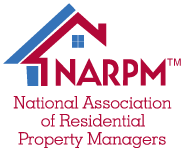Loud music past midnight. Bass-heavy speakers shaking the walls. Keeping noise at a reasonable level isn’t just about courtesy. It’s part of your responsibility as a landlord.
And while you didn’t sign up to be the director of a live-action Noise and Nuisance sequel, keeping the volume in check is key to protecting both your tenants’ sanity and your investment.
That’s right. Somewhere between “Can you fix the leaky faucet?” and “My AC’s making a sound like it’s dying,” you’ll get the all-too-familiar message: “The neighbor plays the trumpet at 2 AM again. I can’t sleep. Please do something.”
Whether it’s amplified sound, barking dogs, or blaring music, noise pollution is one of the most common and frustrating complaints related to rentals. When the noise exceeds what a reasonable person would tolerate, you could be facing a noise violation under Texas state law.
This guide breaks down what landlords need to know to handle noise issues and stay compliant—without losing tenants or your sanity.
Key Takeaways
- Houston enforces noise rules through city ordinance (Chapter 30), which focuses on decibel level, quiet enjoyment, and time-based restrictions.
- Unreasonable noise, noise nuisance, and disorderly conduct are all potentially enforceable under Texas law and local municipal ordinances.
- Landlords are not directly liable, but failing to act on repeated noise complaints can expose you to civil liability or claims of private nuisance.
- Clear lease language, swift communication, and optional tools like a sound impact plan or monitoring devices help resolve issues quickly.
- Professional help from Residential Leasing & Management Co ensures you stay compliant with local law enforcement agency guidelines and state law.
Decoding Houston's Noise Laws: What Landlords Need to Know
Houston’s Noise and Sound Level Regulation Ordinance (Chapter 30) applies to all residential and nonresidential property within city limits. Under this city ordinance, any unnecessary noise that’s plainly audible from 50 feet beyond the property line during nighttime hours can be considered a noise violation.
What Counts as a Noise Violation?
A person commits a violation if they:
- Make unreasonable noise during nighttime hours (10 PM to 6 AM).
- Use sound equipment or a similar device in such a manner that it disrupts the ordinary sensibilities of nearby residents.
- Operate a commercial establishment or private residence in a way that creates a noise nuisance to the general public or a specific person.
Common Sources of Unreasonable Noise
- Amplified sound or music from parties
- Musical instruments used during quiet hours
- Barking dogs (private nuisance)
- Vehicle engines or alarms
- Construction outside of permitted daytime hours
Landlord Responsibilities Under State and Local Law
Under Texas law, landlords must help ensure tenants enjoy their private place without disruption. To do this, include clear noise rules in the lease. Set decibel limits, define quiet hours, and outline what happens when a noise receives notice for disturbing the normal sensibilities of others. These terms should be clearly defined to avoid confusion.
Handle Complaints Promptly
If a tenant is reported for making noise, landlords should keep a simple record of what happened, when, and who was involved. Speak to the tenant calmly. They may not realize they're being too loud. If it keeps happening, send a written warning based on the lease rules.
Check in later to see if the issue is resolved, and keep all records in case you need to contact code enforcement.
When to Escalate: Law Enforcement and Legal Backup
If the issue continues and becomes a public nuisance or leads to disorderly conduct in a public or private place, landlords should act. Contact the local law enforcement agency or code enforcement, and if needed, consult a licensed attorney. For repeat cases, consider a proposed sound impact plan to manage noise at the local level.
Noise From Commercial Properties or External Sources
If a commercial establishment permit is involved (e.g., bars, event spaces near your property), or if noise comes from outside your tenant’s control, consider:
- Filing a complaint with city officials
- Consulting legal counsel under state or federal law
- Evaluating for other unsanitary conditions or private nuisance exposure
Certain properties may be affected by noise from a sport shooting range or construction site. In such cases, the person making the noise might fall outside your lease scope but still impact tenant retention.
Use Tech to Stay Ahead
Tools like NoiseAware or Minut help monitor sound levels without recording audio, while platforms like AppFolio or Buildium track tenant concerns related to noise. Apps like Decibel X can log decibel levels for documentation. These tools not only help manage noise but also show tenants you care—without needing to be there in person.
Why a Property Management Company Makes All the Difference
Dealing with Texas law, municipal ordinances, and constant noise complaints takes time. Residential Leasing & Management Co handles it all, so you can focus on growing your portfolio—in peace.
- Lease enforcement
- Notice and communication with tenants
- Coordination with the local law enforcement agency
- Representation during court proceedings, if necessary
- Knowledge of all things related to noise, real property, and state law
Volume Down, Value Up
Managing excessive noise isn’t about playing the noise police. It’s about protecting your residential property, your tenants’ sanity, and your liability under Texas law.
With Houston’s city ordinance, a solid lease, and proactive enforcement, you can maintain a peaceful environment and avoid costly legal trouble. Because at the end of the day, quiet homes mean longer leases—and fewer late-night complaints.
Let’s be real—you didn’t sign up to be a landlord of the rings, battling late-night tuba solos in the wee hours.
Turn down the noise, turn up the profits—partner with Residential Leasing & Management Co and keep your properties running smoother than a jazz trio on a Sunday brunch.
FAQs
Q: Can landlords be penalized under Texas law for tenant noise issues?
A: Landlords are not directly liable under state law, but repeated inaction can lead to civil claims for private nuisance or breach of quiet enjoyment.
Q: What’s considered “unreasonable noise” under Houston’s city ordinance?
A: Any sound that unreasonably disturbs others, especially during nighttime hours, or noise that exceeds acceptable decibel levels.
Q: Can tenants be evicted for repeated noise complaints?
A: Yes—if properly documented and the lease agreement includes a clause addressing noise nuisance or disorderly conduct, eviction may be justified.
Q: Who enforces Houston noise laws?
A: The local law enforcement agency, peace officers, and city code enforcement departments respond to noise violations within city limits.
Q: What if noise is coming from outside the property?
A: If from a commercial establishment, construction site, or sport shooting range, report it to the appropriate city or state agency. You may still need to support your tenants by addressing noise-related issues through proper channels.
Additional Resources:
Lease Extension vs. Renewal: Key Differences in Houston, Texas
Common Grounds for Tenant Eviction in Houston: What You Need to Know








